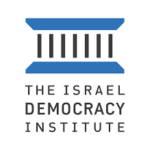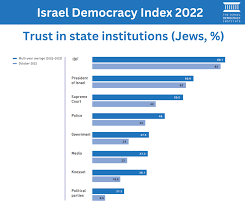Thousands of Israeli protesters descended on the streets of Jerusalem for a third consecutive day on Monday as the country braced for a crucial vote on legislation that would significantly weaken the authority of its Supreme Court, TIME reports. The legislation, which passed 64-0 after the opposition lawmakers left the Knesset in protest, marks the government’s first victory in its seven-month effort to enact the controversial legislation, which critics say could bring Israel to the brink of autocracy.
To understand events in Israel, there is just one question to ask: what limits the power of the government? notes historian, philosopher and author Yuval Noah Harari. Robust democracies rely on a whole system of checks and balances. But Israel lacks a constitution, an upper house in the parliament, a federal structure or any other check on government power except one — the Supreme Court, he writes for The Financial Times:
In recent months I have talked with many Netanyahu supporters, and they genuinely believe that any restraint on an elected government is undemocratic. “What do you mean we cannot take away people’s basic liberties?” they say. “But we won the elections! That means we can do anything we want!” In fact, democracy means freedom and equality for all. Democracy is a system that guarantees all people certain liberties, which even the majority cannot take away.
 “We are moving one step closer to a constitutional showdown,” said Yuval Shany, a law professor at Hebrew University in Jerusalem.
“We are moving one step closer to a constitutional showdown,” said Yuval Shany, a law professor at Hebrew University in Jerusalem.
The courts, Shany told The Wall Street Journal, have never struck down one of Israel’s so-called basic laws, which are piecemeal legislation that is the closest thing the country has to a constitution. But, he said, justices have suggested in various rulings that the court has the right to strike down such a law if it fundamentally changes the nature of democracy in Israel or if it abuses the constitutional process.
Nothing better illustrates the purpose of Kim Lane Scheppele’s 2018 article “Autocratic Legalism” than the eight steps on the road to autocracy that end the recently published Hebrew edition of the piece, out now in book form, notes analyst Iris Leal. They show that the article shouldn’t be read as a mere academic study on the history of tyranny or a philosophical discussion.
An absolute, murderous concentration of power is easy to identify based on experience, she writes for Haaretz. But the tyrants of the current century are different in their modus operandi, rhetoric, style and goal. You might say that Scheppele’s article is an accessible update of Hannah Arendt’s “The Origins of Totalitarianism” for the 21st century.
The irony is that appropriate institutional reform would have received widespread support from the opposition, adds Natan Sachs, senior fellow and director of the Center for Middle East Policy in the Foreign Policy Program at the Brookings Institution. Had Netanyahu’s government begun the process with the aim of finding a middle ground, all the drama and political and economic damage of the past six months could have been avoided.
 Instead, the camps facing each other in Israel are now clear adversaries, with one demanding unbridled majoritarianism and the other defending substantive democracy. It is essential that those who support democracy abroad choose the right side, he writes for the Journal of Democracy.
Instead, the camps facing each other in Israel are now clear adversaries, with one demanding unbridled majoritarianism and the other defending substantive democracy. It is essential that those who support democracy abroad choose the right side, he writes for the Journal of Democracy.
Israel also has minimal local governance and lacks a formal constitution, according to constitutional law professor Amichai Cohen. This means that most of the power is centralized in parliament, Cohen said. The “basic laws” — foundational laws that experts describe as a sort of informal constitution — can be changed at any time by a bare majority, he tells POLITICO.
 With the overhaul, Cohen said, the Israeli parliament now threatens to further consolidate its power by weakening the judiciary. “The government can do whatever it wants, because it controls the ability to change even the basic laws,” Cohen said.
With the overhaul, Cohen said, the Israeli parliament now threatens to further consolidate its power by weakening the judiciary. “The government can do whatever it wants, because it controls the ability to change even the basic laws,” Cohen said.
Shlomit Ravitsky Tur-Paz, a legal and Jewish studies scholar with the Jerusalem-based Israel Democracy Institute, said that even though the right wing has been in power for decades, many voters still feel as if the country is ruled by secular, liberal elites and that is most evident in the power wielded by the court, the Journal adds. “They still feel they are the ones who don’t have the power,” she said. “So that’s what they are trying to change now.”
Israeli democracy is fighting for its life, @harari_yuval writes for @FT. https://t.co/Y4A6I1jWuG
— Democracy Digest (@demdigest) July 24, 2023







